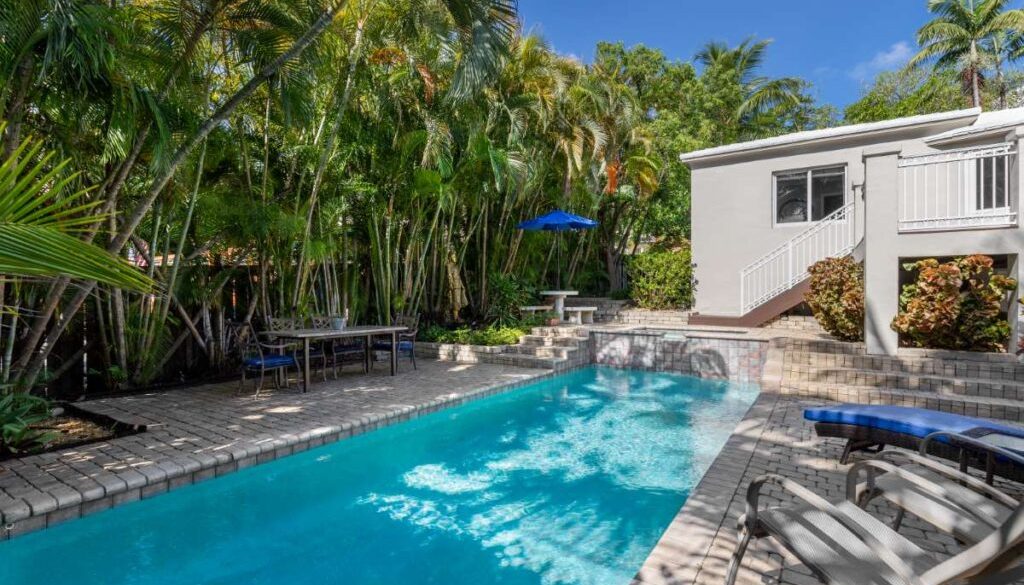Evaluating Lease Terms That Attract Long-Term Tenants
Evaluating lease terms is crucial for both landlords and tenants. Discover how to attract long-term tenants with favorable leases.
Evaluating Lease Terms That Attract Long-Term Tenants
When it comes to renting commercial properties, landlords are often faced with the challenge of attracting and retaining long-term tenants. The terms of a lease can significantly influence a tenant’s decision to commit to a property for an extended period. This blog post delves into the essential elements of lease agreements that can make them more appealing to tenants, while ensuring that property owners still protect their investments. We will explore various strategies and best practices to create lease terms that not only attract tenants but also encourage them to stay longer.
In the competitive landscape of commercial real estate, understanding what tenants value in lease agreements is key. Many factors come into play, from the length of the lease to the terms regarding rent increases, maintenance responsibilities, and additional fees. By evaluating these terms carefully, landlords can create a win-win situation that fosters tenant loyalty and enhances property value.
The Importance of Flexible Lease Terms
- Flexibility in lease terms can be a significant draw for tenants looking for stability in an unpredictable market. A lease that offers options for renewal or renegotiation can encourage tenants to remain in the property longer.
- Consider including options such as early termination clauses, which allow tenants to exit the lease under specified conditions. This can add a layer of security for tenants, knowing they have a way out if their business needs change.
- Additionally, landlords might consider offering shorter initial lease terms with renewal options. For instance, a one- to two-year lease with the possibility of extensions can attract businesses that are unsure of their long-term plans.
For example, a small startup may be hesitant to commit to a five-year lease but might feel comfortable signing a two-year lease with a renewal option. This flexibility could ultimately lead to a longer tenancy if the business stabilizes and grows.
Transparent Rent Structures
- Clear and transparent rent structures can significantly impact tenant satisfaction. Ambiguous rent terms can lead to misunderstandings and disputes down the line, which can harm landlord-tenant relationships.
- Offering a predictable rent increase schedule, such as fixed percentage increases or CPI-based adjustments, can enhance transparency and help tenants plan their finances effectively.
- Consider detailing all potential costs associated with the lease, including utilities, maintenance fees, or property taxes, to avoid any hidden charges that may frustrate tenants.
For example, a landlord might implement a lease structure where the base rent increases by a fixed percentage each year, allowing tenants to anticipate their financial obligations. This clarity can foster trust and lead to longer lease commitments.
Maintenance and Repair Responsibilities
- Clearly defining maintenance and repair responsibilities in the lease can prevent disputes and promote a positive rental experience. Landlords should outline who is responsible for various aspects of property upkeep, including routine maintenance, emergency repairs, and landscaping.
- Offering to handle major repairs can be a strong selling point for tenants, as it alleviates the burden of unexpected costs. This approach can make your property more attractive compared to others that may require tenants to manage significant repairs themselves.
- Additionally, consider including clauses that allow tenants to negotiate minor repairs or improvements. Providing a mechanism for tenant input can enhance their sense of ownership and satisfaction with the space.
For instance, if a landlord agrees to cover all major repairs while allowing tenants to manage minor upkeep, it creates a collaborative environment that encourages tenants to invest in the property, further solidifying their commitment.
Incentives and Concessions
- Incentives can be powerful tools for attracting long-term tenants. Offering concessions such as rent-free periods, reduced deposits, or tenant improvement allowances can make a lease more enticing.
- Consider providing a one-month rent concession at the start of the lease to allow tenants to allocate resources toward setting up their business. Alternatively, a tenant improvement allowance can be a significant draw for businesses looking to customize their space.
- However, it’s essential to balance these incentives with sound financial planning to ensure that they enhance landlord profitability in the long run.
For instance, in a competitive market, a landlord who offers a one-month rent-free period may find that this initial investment pays off with a longer lease duration and reduced vacancy rates.
Clear Communication and Relationship Building
- Establishing open lines of communication can significantly enhance tenant satisfaction and loyalty. Ensure tenants feel comfortable discussing their concerns or requests with you. This relationship-building approach often results in tenants who are more willing to commit for longer periods.
- Regular check-ins or property inspections can demonstrate your commitment to maintaining the property and valuing the tenant’s experience. This proactive approach can also identify potential issues before they escalate.
- Consider hosting tenant appreciation events to foster community within your properties. These events can build goodwill and create a positive environment that encourages tenants to stay longer.
By creating a strong relationship with tenants, landlords can improve tenant retention rates. For instance, a simple gesture, such as sending a holiday card or hosting an annual barbecue, can go a long way in building rapport and loyalty.
Understanding Market Trends and Tenant Needs
- Staying informed about market trends and tenant needs can be a valuable asset when crafting lease terms. Understanding what businesses require in terms of space, amenities, and flexibility can help landlords tailor their offerings to meet demand.
- For example, with the rise of remote work, businesses may seek flexible office arrangements. Consider offering co-working spaces or shared facilities to attract such tenants.
- Use market data to inform decisions about rent pricing, lease lengths, and amenities. Conducting regular market research can help landlords remain competitive and responsive to changing tenant needs.
For instance, a landlord who recognizes the demand for eco-friendly spaces can invest in sustainable features or certifications, making their property more appealing to environmentally conscious tenants.
Regular Lease Reviews and Adjustments
- Periodically reviewing lease terms can ensure they remain competitive and relevant. Market conditions evolve, and so do tenant expectations; adapting lease terms accordingly can help attract and retain tenants.
- Consider conducting annual reviews of your lease agreements to identify areas for potential improvement. This proactive approach can set you apart from landlords who may be less responsive to tenant needs.
- Incorporating feedback from current tenants can provide valuable insights into lease terms that may need updating. Engaging in dialogue about lease conditions can also reinforce a sense of partnership.
For example, if a landlord learns that tenants desire more flexible payment options, they could adapt their payment structure to accommodate these preferences, enhancing tenant retention.
Conclusion
Evaluating lease terms is a critical factor in attracting long-term tenants and ensuring the success of commercial properties. By implementing flexible terms, transparent rent structures, clearly defined responsibilities, and strong communication practices, landlords can create an appealing environment for tenants. Additionally, offering incentives, understanding market trends, and regularly reviewing lease agreements can further enhance tenant satisfaction and loyalty.
As the commercial real estate landscape evolves, staying attuned to tenant needs and maintaining proactive relationships with tenants will be essential for fostering long-term commitments. By taking these steps, landlords not only protect their investments but also contribute to a thriving rental community.
Contact us today at Tower Business Brokers to discuss how we can assist you in navigating lease agreements and maximizing your property’s potential!



